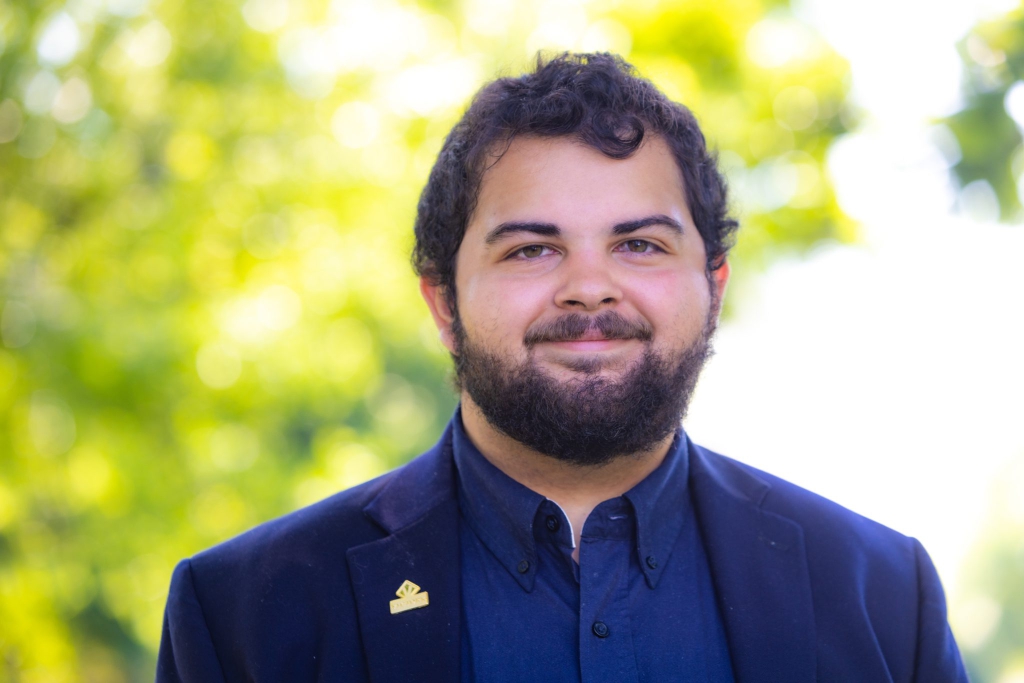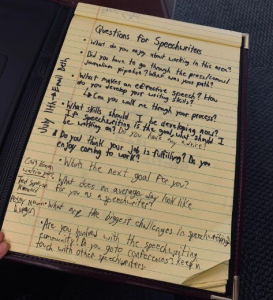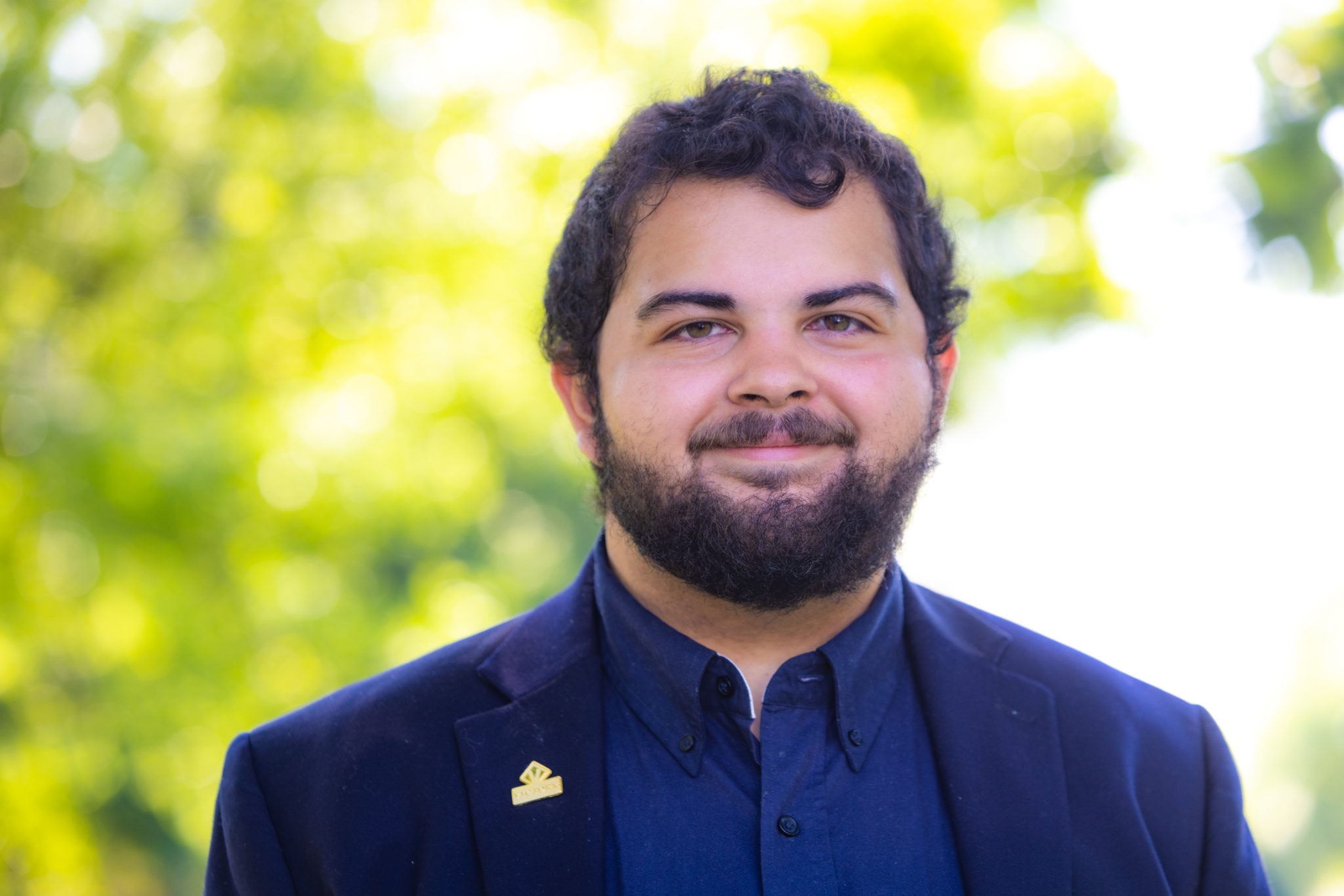
OUT ON THE HILL is the official blog of the Victory Congressional Interns. Views expressed do not necessarily reflect those of LGBTQ Victory Institute. Learn more about the internship at victoryinstitute.org/vci.
———————————–
At least once a week throughout my internship, I find myself sprinting from the House offices over to the Senate offices. I trek through the tunnels, pass the visitor’s center, ride the subway, and stroll into the same coffee shop every time with the same purpose: to talk to a speechwriter. I have always been a person who gravitates towards the artists around me. In high school, I was friends with the theater kids. During summer programs, I stuck with drawers and painters. In college, those closest to me are the poets. And now, I am drawn to the speechwriters, the artists of Capitol Hill. They can command words like no other as they write for the most influential voices in the nation. They are creators. They have backgrounds as poets, songwriters, playwrights, authors, and more. I am always eager for those conversations at Cups & Company where I order my caramel chai latte and prepare to take notes in my journal.
Each speechwriter who I have sat across from has had an incredibly relaxed aura. In fact, these conversations have been the only instances of “networking” that I can say have felt like genuine interactions. The speechwriters have been exciting and unsurprisingly human. It is refreshing to hear a professional speak candidly about their experiences and to hear them say they have felt underqualified and confused about how they ended up with such an amazing job. Most of them have shared that they feel their success has been largely due to them being at the right place at the right time. These stories are only reassuring to me. I once only saw Capitol Hill as a system where wealth and nepotism took all precedent—and I think that is still mostly true—but I am glad to have confirmation that that is not the only way to succeed in Washington, D.C.
I am grateful to have received some pretty stellar advice from these meetings, both as an aspiring professional and an up-and-coming writer. A common thread from the speechwriters is that they all approach the job with real people in mind. They are not writing for legislative staff, or journalists, or to the other politicians, but for the average person. To write a speech is to translate complex policy and ideas into accessible English. This importance of easy-to-understand language is something I plan to carry with me in my future writing.
 One speechwriter also confronted me with a difficult truth: a writer needs to learn how to be okay with the fact that not everything that they write will be used. This was not a surprise, certainly, but it is something that I already know too well. I had been hopeful that my days of rejected memos, unaccepted poems, and poorly graded essays could one day come to an end. It was a reality check. The thought of putting such great effort onto a page only for the final product to be discarded is painful. But this piece of advice did not come without a positive outlook. The speechwriter had reminded me that even if something does not get used at first, the ideas will always remain and may even resurface in future pieces. It was a comforting thought that made me feel as though none of my work as a writer will ever truly go to waste.
One speechwriter also confronted me with a difficult truth: a writer needs to learn how to be okay with the fact that not everything that they write will be used. This was not a surprise, certainly, but it is something that I already know too well. I had been hopeful that my days of rejected memos, unaccepted poems, and poorly graded essays could one day come to an end. It was a reality check. The thought of putting such great effort onto a page only for the final product to be discarded is painful. But this piece of advice did not come without a positive outlook. The speechwriter had reminded me that even if something does not get used at first, the ideas will always remain and may even resurface in future pieces. It was a comforting thought that made me feel as though none of my work as a writer will ever truly go to waste.
Perhaps the most crucial guidance I was given came after I asked a speechwriter what they enjoyed about their work. They told me that as I begin to look for careers and potential life paths, it is of the utmost importance that I find my motivation. I was told to find my “why.” Why do I enjoy my passions? Why do I get out of bed every morning? While I don’t have an answer for these questions yet? I believe that this perspective is exactly what I have been needing to hear.
These conversations have proven to me that it is possible for a person to be excited about the work that they do. As I listen to the speechwriters speak about their work, I notice how animated they are. They gesture with their hands, lean back in their chairs, and almost bounce with joy as they share some of their favorite moments from work. I would say that they have found their “why.” I become giddy thinking about this. That is part of the reason I keep meeting with speechwriters. I want to figure out how they discovered their motivation in hopes that I may one day be able to discover my own.

